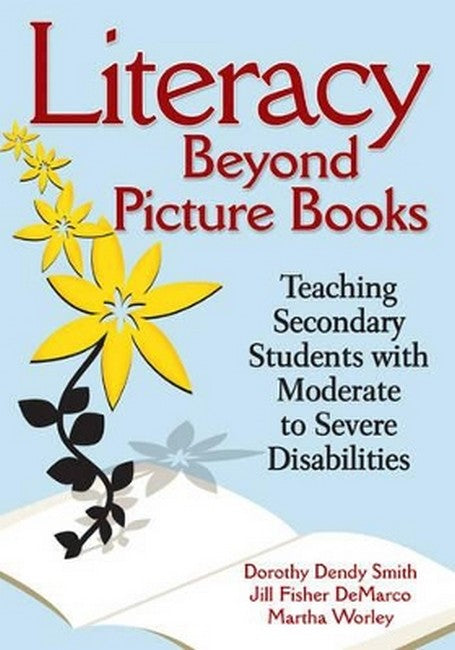Dorothy Dendy Smith has taught in the field of special education for 26 years. She is currently the autism specialist for Buncombe County Schools. She was Special Educator of Excellence for Buncombe County Schools for the 2006-2007 school year, and Teacher of the Year for the Progressive Education Program in Buncombe County Schools for the year 2000-2001. Smith was the Teacher of the Year for Walnut Cove Primary School and first runner-up for Teacher of the Year in the Stokes County School District in North Carolina. She graduated from Western Carolina University in 1972 with a BS in special education. She received a master of arts in education, special education, severe disabilities from Western Carolina University in 2002. She has certifications in learning disabilities, mental retardation, and severe disabilities. Jill Fisher DeMarco worked with adults with disabilities for 15 years before beginning her career in special education. She has taught high school students in the Occupational Course of Study and currently is in the seventh year of teaching at the Progressive Education Program at Valley Springs Middle School in Arden, NC. She was the 2005-2006 Teacher of the Year for the program. She has a bachelor of science degree in vocational rehabilitation from Appalachian State University and a master of arts in teaching degree and a master of science degree in human resources from Western Carolina University. She has certifications in mental retardation and learning disabilities. Martha Worley has taught for 15 years in the public schools as a speech pathologist. She is currently a speech pathologist at the Progressive Education Program at Roberson High School in Asheville, NC. She also works with other schools in Buncombe County to provide access for students with mild to significant disabilities. She was the Special Education Teacher of Excellence for Buncombe County Schools in the 2001-2002 school year. She has a bachelor of arts from Baylor University and a master of science degree from Vanderbilt University.
Request Academic Copy
Please copy the ISBN for submitting review copy form
Description
List of Tables Foreword by Karena Cooper-Duffy Acknowledgments About the Authors Introduction: A Quest for Change 1. Research and Program Overview 2. Establishing a Foundation for Planning 3. Building a Theme 4. Setting the Stage 5. Providing Access Through Assistive Technology 6. Instructional Delivery 7. Home Involvement 8. Assessment 9. Collaboration With General Education and Inclusion 10. Functional Skills Appendix I: Lesson Plans for Black Stallion Appendix II: Lesson Plans for Island of the Blue Dolphin Appendix III: Lesson Plans for Stone Fox Appendix IV: Lesson Plans for The Secret Garden Appendix V: Lesson Plans for Where the Lilies Bloom Appendix VI: Lesson Plans for the Wizard of Oz Resources Glossary References List of Universal Resource Locators Index
"I was rejuvenated by the potential opportunities for exciting and meaningful instruction. My creative thoughts ran rampant with how I could use these ideas with my novice teachers as well as within my classroom." -- Jayne Englert-Burns, Consulting Teacher, Special Education "Provides everything needed to start an appropriate curriculum that is motivating and challenging for students with moderate to severe disabilities. This book is a winner!" -- Karen Kozy-Landress, Speech/Language Pathologist "We've tried for the last few years to adapt the grade level material to help our students feel like part of the general education setting, while still meeting their IEP goals. It's been a real challenge, but this book helps bring the concept to more of a reality." -- Michelle Strom, Language Arts Teacher "Each chapter is chock full of excellent ideas that have stood the test of time. The conversational tone of the authors conveys their enthusiasm for the work they share and the students they teach." -- Iris Goldberg, Director of Early Childhood Education "Presents a wealth of information for using a thematic approach for teaching literacy skills to students with moderate and severe intellectual disabilities. The teaching approach is comprehensive, with procedures built in to facilitate team teaching, parent involvement, use of assistive technology, and inclusive practices. The authors have done a particularly nice job of describing how to make teaching student-centered by focusing on individual student interests and learning styles and by making classroom instruction exciting and fun for students." -- Dennis H. Reid, Director

